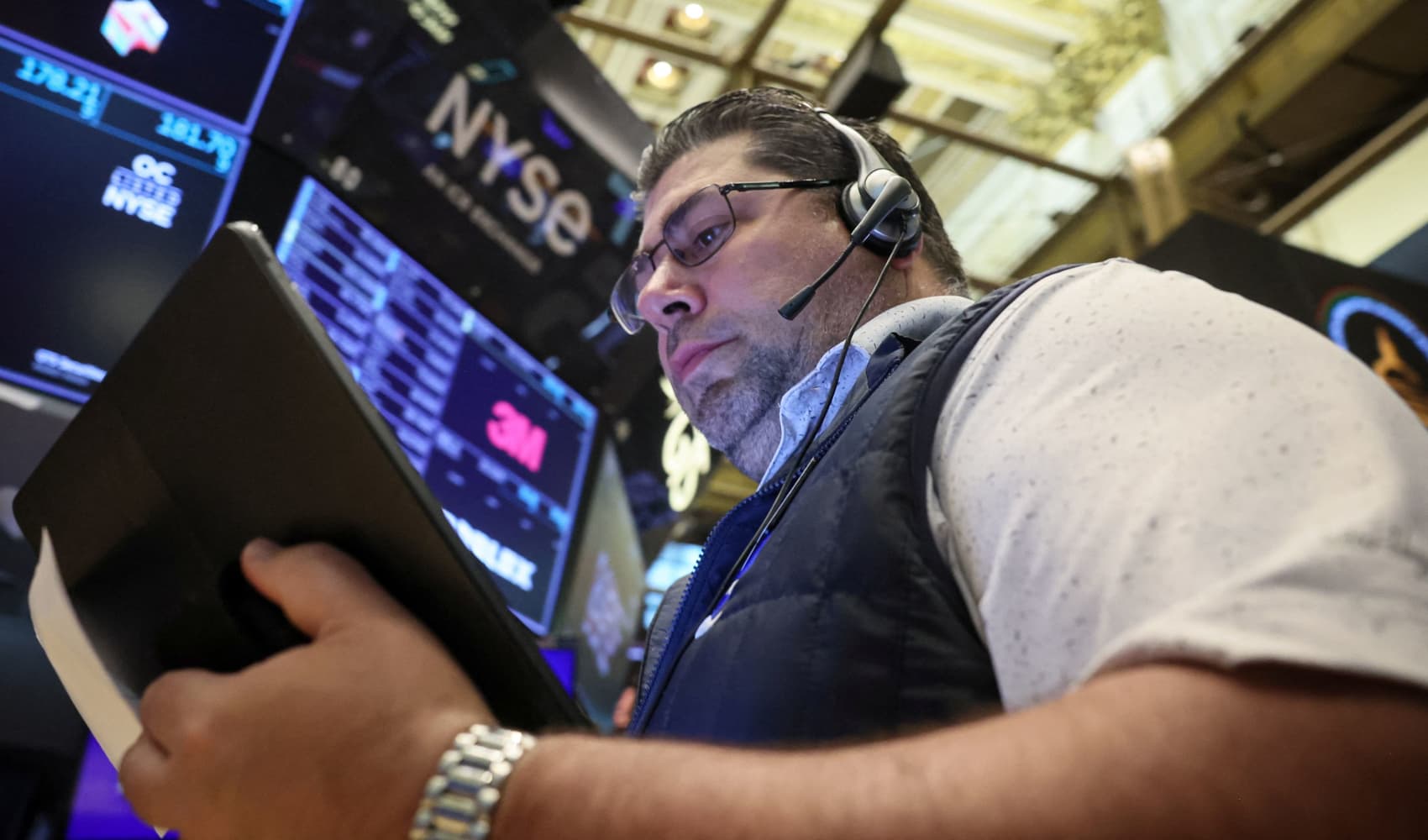
In 2024, Gen Z workers are expected to outnumber baby boomers in the American labor force for the first time. But right now, the workforce's youngest generation, the oldest of whom are 27, is treated as a novelty — with everything from their email signatures to their salary expectations put under the microscope. CNBC Make It explores how Gen Zers are really putting their mark on career advice, office culture and more.
Imagine a workplace without meetings or long email chains — a place where you set your own hours and your co-workers discuss their salaries and therapy appointments openly.
As more members of Gen Z enter the C-suite, such workplaces are becoming more common in offices and online.
The average CEO age is still about 54. But the number of Gen Z CEOs is on the rise, according to McKinsey & Co.
Those who haven't ascended the corporate ladder are interested in becoming the big boss: Gen Z is more than twice as likely to want to be CEO compared with Gen X (38% versus 18%, respectively), McKinsey reports. That's compared to 21% of baby boomers and 31% of millennials who say they'd want to be a CEO.
Much of Gen Z came of age amid the Covid-19 pandemic, a time marked by deep social unrest, historic quitting rates and widespread burnout, all of which have influenced their desire to be their own boss and do meaningful work with a sense of autonomy and flexibility.
Get Tri-state area news and weather forecasts to your inbox. Sign up for NBC New York newsletters.
To be clear, Gen Zers are not the first 20-somethings to challenge the workplace as we know it.
Money Report
Millennials have been on the receiving end of similar stereotypes lobbed at Gen Z now, namely, that they're coddled, lazy and entitled job-hoppers.
"Both generations of leaders have similar values," says John Avi Socha, the 27-year-old COO and legal operations director of Hemmat Law Group, a small firm in Seattle.
"I think millennials were just as bushy-tailed and bright-eyed at our age as we are now," he adds, pointing out that the main difference between both generations is that millennials took the brunt of the 2008 recession, which stunted their career growth and earning potential.
Ballooning student debt and rising real estate costs further squeezed millennials, which Socha suggests has made some millennial leaders "more jaded and cautious" than their Gen Z counterparts.
Here's what Gen Z is bringing to the C-suite:
No meetings and free-for-all scheduling
At The Z Link, a marketing agency comprised entirely of Gen Z employees, meetings are a rare occurrence.
It's a work style introduced by Gen Z founder and CEO Erifili Gounari, 24, who launched The Z Link in 2020 while she was a college student at the University of Glasgow in Scotland.
The company is entirely remote — Gounari, who works from London, manages 25 employees spread out across a dozen countries including Portugal, Finland, Spain and the U.S. Gounari and her team have built up a robust client list that includes Deloitte and Ikea.
"I've been in too many work environments [in internships and previous jobs] with tons of meetings that felt like a genuine waste of time," she says. "Having something that operationally makes no sense, but just sounds good on paper, is not good leadership, it just takes away people's time from other projects and responsibilities."

Instead, employees at The Z Link send voice memos or messages on Slack and collaborate on Google Docs to share feedback and problem-solve together. Meetings are only held at a client's request, or if there's an emergency.
Although millennials have had access to smartphones and the internet for much of their careers, Gen Z is the first generation to grow up with the internet and other technological innovations like AI and social media. Being digital natives has shaped much of the behaviors and preferences of Gen Z CEOs thus far, says Gounari.
"We have a knack for using technology to be as efficient as possible, and embrace tools that will help our teams work faster and smarter," she adds.
For similar reasons, employees at The Z Link have embraced asynchronous work and choose their own schedules. People working on client projects together will coordinate their hours but beyond that, employees have autonomy over their schedules.
Gen Z overwhelmingly prefers working flexible hours at convenient times for them over a set work schedule, according to a 2023 Adobe report, which also found that a quarter of Gen Zers reported their productivity peaks between 6 p.m. and 3 a.m.
By comparison, less than 15% of millennials, Gen Xers and baby boomers said they log on after 6 p.m.
As Gounari explains: "You can't rush creativity and you can't force it, so trusting people to work during the time they're at their most creative and productive has helped us produce the best work."
Making workplaces more casual and open
Sid Pandiya, a 24-year-old CEO, includes therapy appointments on his work calendar and prefers a clever GIF over a carefully-written email.
So do his co-workers, and Pandiya says they're better off for it.
"We're open with our feelings and comfortable with each other," Pandiya, the CEO and co-founder of Kona, a Slack-integrated tool for remote managers. "I feel like in other places I've worked, there was an element of policing our language and tone to be more formal and buttoned-up."
Pandiya works remotely from San Francisco and manages a team of five employees online — two millennials and three Gen Zers.
Pandiya says Gen Z is less concerned with the narrow confines of "professionalism" than previous generations. Instead, they value transparency at work, particularly in discussions involving mental health.
"The shared ethos of a lot of older leaders I've worked with [at internships] is that work is work and you don't need to share how you're feeling or your personal life," says Pandiya. "But being vulnerable and open has helped our staff trust each other and feel more comfortable working together."

An overwhelming majority — 92% — of Gen Zers say it's important for them to feel comfortable discussing mental health at work, and 52% would turn down a job that doesn't offer a good work-life balance, according to a Monster survey of 1,000 18 to 24-year-olds.
Creating a casual, open workspace supports young employees' mental wellness, Pandiya says.
"Vulnerability builds stronger connections," he explains. "And you can only have a vulnerability in the workplace if there's open, safe space to talk about mental health, burnout and other challenges you might face in your job."
Plus, "it's easier to feel comfortable and motivated at a job where you can 100% be yourself," he says.
Communicating casually has helped prevent workplace conflicts, Pandiya adds: "We don't have to overthink how things are going to be construed, we all understand that everyone is working toward the same goal and always assume positive intent."
It's hard to pinpoint what, exactly, sets Gen Z CEOs apart from their predecessors this early on in their tenures. But if Pandiya had to guess, he says it's that they understand the importance of humanizing work more.
"All of the Gen Z leaders I've worked with share the same mindset, which is that taking care of your people will take care of your company," he says. "Empathetic leadership is becoming more of the norm among Gen Z, it's like an innate understanding that your work is not your whole life, and that your personality and interests outside of your job enrich your ability to work hard and do your best to help your company succeed."
How Gen Z and Baby Boomers are working together in the C-Suite
When Socha, the 27-year-old COO, started working at Hemmat Law Group in 2019, it was just him and his 62-year-old boss, Steven Hemmat, an attorney and CEO of the firm, on staff.
Hemmat wanted to hire more Gen Z talent, and Socha knew the best place to start: including salary ranges in job ads.
Economic uncertainty and a higher cost of living have made salary a priority for Gen Z job seekers, with 85% saying they are less likely to apply for a job if the company does not disclose the salary range in the listing, a December 2023 Adobe survey of more than 1,000 Gen Zers found.
In 2019, when Socha first entered the workforce, salary transparency was a fringe movement, but rapidly gaining momentum: That year, Colorado became the first state in the nation to enact a salary transparency law.
It was also a constant topic of conversation between Socha and his friends. "I started my career working in the non-profit sector earning maybe $50,000 a year, wondering if I had enough money to pay rent next month," he recalls. "My friends had similar experiences of trying to make low salaries work in an expensive city."

He thought including compensation details in job ads could give the firm a competitive advantage when recruiting and retaining talent. "Seattle has a competitive hiring market for legal talent," says Socha. "There's a lot of talent and we're up against bigger, more established firms."
It didn't take much convincing to get Hemmat on board. "I didn't judge John's suggestion based on what other law firms were doing at the time," Hemmat says. "Maintaining transparency seemed to make much more sense. Otherwise, we could be spending a significant amount of time interviewing people with different financial expectations or who were over- or under-qualified for the role."
Socha started including estimated ranges for open roles at Hemmat Law Group online and saw an "almost instant" surge in interest from potential candidates. "We were getting at least 50 to 70 applications per role, which was a lot more than we were expecting."
Hemmat Law Group now has 30 employees, many of whom are Gen Z or millennials. Socha says that, since 2019, the firm has had a near 100% retention rate — and that's in no small part because the firm has embedded Gen Z's values and priorities in its corporate practices. That includes introducing a new peer-led performance review process to take away some of the anxieties and discomfort young employees feel during manager-led conversations.
"This approach appeared to make good sense for our staff," says Hemmat. "We want to maintain a harmonious and collaborative office environment where everyone is valued."
Creating a workplace where Gen Z feels comfortable, Socha adds, "is one of the best ways to help them thrive in their careers."
Want to land your dream job in 2024? Take CNBC's new online course How to Ace Your Job Interview to learn what hiring managers are really looking for, body language techniques, what to say and not to say, and the best way to talk about pay.
Plus, sign up for CNBC Make It's newsletter to get tips and tricks for success at work, with money and in life.






